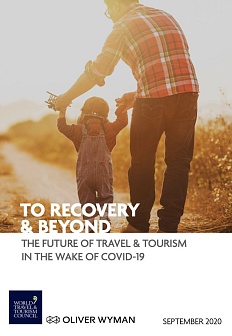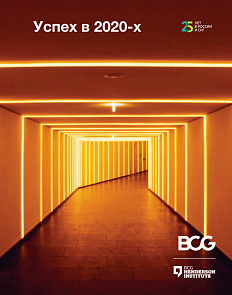National Agency for Financial Studies (NAFS) experts present a study of the New Reality phenomenon in the context of the socio-economic impact of the global recession caused by the COVID-19 pandemic.
The term «new reality» became widespread after the financial crisis of 2007-2008 and was previously used mainly to describe the socio-economic consequences of the global recession.
This material describes already manifested trends of «new reality» based on the most recent sociological studies, as well as expert forecasts of NAFS Analytical Center specialists based on these studies. Projections describe changes in the surrounding reality, including consumer markets, family and reference groups, cultural practices and human-state relations.
The Roscongress Foundation presents the salient points of the publication accompanied by fragments of broadcasts of relevant panel discussions from the business programme of international events held by the Roscongress Foundation.
Events related to the measures to curb the spread of coronavirus infection caused a sudden «collapse of perspectives», which divided people into those who are ready to act and those who decided to wait.
During self-isolation, people took a fresh look at the humanitarian role of digitalisation — the opportunities it offers in work, study, leisure and the threats it can pose if it goes unchecked. In fact, the pandemic has divided people not just into «ready to act» and «ready to wait», but into special personality types in terms of digitalisation — into techno-optimists and techno-pessimists, i.e. those who are ready for change and those who are not ready for it.
The COVID-19 pandemic has shown a number of trends in the evolution of people’s way of life and their socio-economic impact: remote employment is now presented as a standard for modern companies, as well as the mass mastery of digital competencies and others.
One year before the pandemic, one in every four Russian companies had remote employees, and the remote work format was more typical for micro and small businesses, as well as for large international companies (mainly from the IT segment).
Rising apparent and hidden unemployment after the crisis will increase competition in the labor market, where digital competence is becoming increasingly important for employers. In most industries, such competition will provoke a temporary decrease in wages and, at the same time, an increase in requirements for workers. In turn, junior and mid-level employees will actively seek additional training and professional development programs in an effort to obtain better paid jobs.
At the same time, the pandemic has also revealed a number of negative trends, such as an increase in cybercrime and other types of fraud.
Economic crises and the associated decline in revenue have traditionally been times of activisation of financial fraudsters. In recent years, especially in the aspect of transition to remote service channels, it has become obvious that the speed of development of fraudulent systems in the banking sector significantly exceeds the speed of building protection against such illegal actions.
For more information about construction as a sector with a sizeable share in many economies, rising level of digitalization, and shifts in consumer sentiment in real estate, please see the COVID-19, Entrepreneurship, Cybersecurity and StayHomeEconomy.






